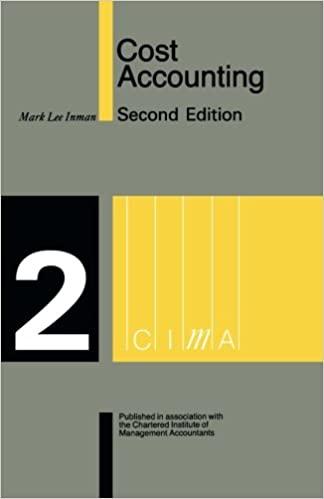Question
John Jay Lighting, Inc. is a standard lighting and fixtures wholesaler with two locationsone in Albany, New York, and another in New York City, New
John Jay Lighting, Inc. is a standard lighting and fixtures wholesaler with two locationsone in Albany, New York, and another in New York City, New York, that just recently opened. The audit senior stayed in Albany to audit the main store, and a staff accountant was sent to the NYC store. The staff accountant returned after a week and said that everything was fine at the NYC store, which was good, though the senior, because the audit fee had been cut from the previous year, and the audit team was under time pressure to finish the job. One of the first things the senior did was look at the audit differences, and she noticed an adjustment in excess of $100,000a debit to sales and a credit to accounts receivable. To adjust the general ledger (GL) to the accounts receivable trial balance at the NYC store is how the description read. She asked the staff accountant how an error that big could happen, and he told her the store manager said they had some problems installing the accounting system at the new store. The senior thought the adjustment was proper since the general ledger balance was now in agreement with the subsidiary ledger. A little while later she was reviewing the analytical procedures and noted that the gross margin percentages at the NYC store were quite a bit lower than the margins at the main store in Albany. In the work papers was the explanation, Per store manager, prices were reduced at the NYC store to attract customers in a new location. The next day, the senior was talking to the controller at the main store in Albany, and she mentioned how it looked like there had been a few problems at the NYC store but they were working them out. I guess those price reductions you had earlier in the year really worked to attract new customers, she said. Price reductions? said the controller. What price reductions? The company was a wholesale distributorthey didnt have sales like one might find in a retail store. The senior then brought up the problem the company had in installing the accounts receivable system at the NYC store. The controller said that the senior must have been mistaken because no concerns had ever been reported by the store manager. The senior realized something wasnt right, and after consulting with the manager and partner, the auditors discussed their concerns with the controller and company owner. The client and auditors agreed to investigate the situation further, so the auditors expanded their procedures, tracing customer payments for the NYC store back and forth from the sub-ledger to the GL. That expanded network led to the discovery that the NYC store manager was stealing customer payments on accounts. Thats why the sub-ledger was out of balance with the GL. To cover it up, the manager debited the sales account, which was why the gross margins didnt make sense.
1. Is this an example of fraudulent financial reporting or misappropriation of assets?
2. What created an opportunity to commit fraud?
3. What was the trail created by the fraud, that is, what circumstances tipped off the auditors that a fraud might have occurred?
4. The staff accountant originally missed these warning signs of fraud. What were some reasons why the signs were missed?
Step by Step Solution
There are 3 Steps involved in it
Step: 1

Get Instant Access to Expert-Tailored Solutions
See step-by-step solutions with expert insights and AI powered tools for academic success
Step: 2

Step: 3

Ace Your Homework with AI
Get the answers you need in no time with our AI-driven, step-by-step assistance
Get Started


